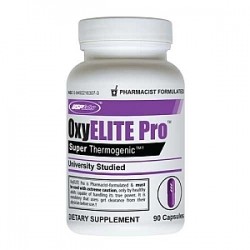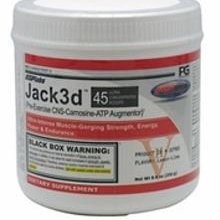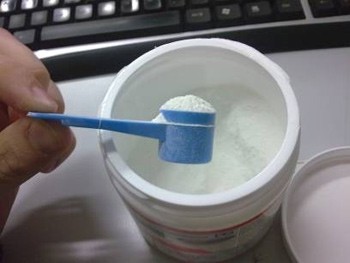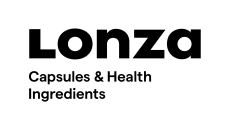USPLabs: DMAA is from geranium oil – and critics are ‘uninformed’

Asked about the source of the DMAA in its supplements - which are among several recently recalled from stores on US army and air force bases amid safety concerns – a USPLabs spokesman said:
“DMAA is, in fact, a constituent of geranium (Pelargonium graveolens) and its derived oil and has been consumed as part of the human diet for more than 100 years.”
He added: “We have enlisted credentialed individuals and organizations to assist us in our endeavors [to prove the above]. As new information is released and published, we will quickly alert consumers regarding our findings.”
He did not however clarify whether the DMAA contained in Jack3d and OxyElite Pro was actually sourced from geranium or was a synthesized copy of a geranium extract, however.
Speculation and conjecture
As for those querying whether DMAA was even in geranium, he said: “There are flaws in the logic that certain individuals who attack the ingredient from an uninformed standpoint have been using. What is currently in circulation about the ingredient is speculation and conjecture professed by competitors and those who are not serious about researching specific and important aspects of geranium and its properties.
“Thus, it is easy for those individuals to irresponsibly allege and disperse false and misleading information which does not help the consumer or the industry. In addition, the processes and methodologies that certain chemists have cited contain critical errors in analytical methods and/or the oils used for these analyses."
He added: “We would welcome the opportunity to discuss these issues directly with any legitimate chemist you have spoken to in order to begin a productive and informative dialogue on this very important research."
DoD: Too soon to tell if there is a relationship with DMAA [and soldier deaths]
His comments came as the Department of Defense continued its probe into the safety of DMAA following the deaths from cardiac arrest of two soldiers using DMAA containing products.
Col. John J. Lammie, MD – director, Health Policy Services, Office of the Surgeon General of the Army, told NutraIngredients-USA that the military had not yet come to any conclusions about DMAA and had ordered a recall of DMAA-containing supplements as a precautionary measure.
He added: “I want to emphasize that no link between DMAA and the medical conditions reported by military medical providers has been validated scientifically by us.
“While the DOD leadership and the USAPHC take these reports very seriously, all of these medical conditions have multiple causes. It is too soon to tell if there is a relationship with DMAA.”
Products held in storage
DMAA-containing supplements recalled by the military are being “held in storage pending the recommendations of DoD leaders after the scientific review is complete”, he said.
"USAPHC is assisting the Office of the Army Surgeon General's Health Policy and Services Directorate in conducting a study of potential health effects of DMAA.
"Medical, dietary and public health specialists are currently developing the methods and tools that will be used in the study. Both providers and service members will provide input. We anticipate it will take several months to conduct the study; timeframes could change, though."
The probe was launched as “two soldiers using DMAA containing products suffered cardiac arrest while exercising”, he said.
”One died immediately after the event, the other after a one month hospitalization. Both were found to have DMAA in their blood. We are reviewing any reports of side effects submitted by providers and reviewing available scientific literature.”
Ongoing debate over the source of DMAA
There is an ongoing debate about whether DMAA, which was first manufactured synthetically by drug giant Eli Lily in the 1940s, is in fact a constituent of geranium, as US supplement makers claim.
The American Herbal Products Association (AHPA) recently told members they should not label DMAA as geranium oil or any part of the geranium plant, while Health Canada has also issued a statement arguing DMAA is not found in geranium and affirming that any products containing it require a drug authorization.
However, a statement released by Barry Lynch, associate director at Cantox Health Sciences International on September 6, claimed that USPLabs has commissioned data "from two independent and highly respected analytical chemistry laboratories" that supports the findings of a 1996 study (Ping, Z.; Jun, Q. & Qing, L. (1996), ‘A Study on the Chemical Constituents of Geranium Oil, Journal of Guizhou Institute of Technology 25 (1): 82–85), that is always referenced as proof that geranium oil contains DMAA.
The data is currently being prepared for submission to peer-reviewed journals for publication, according to Lynch.















